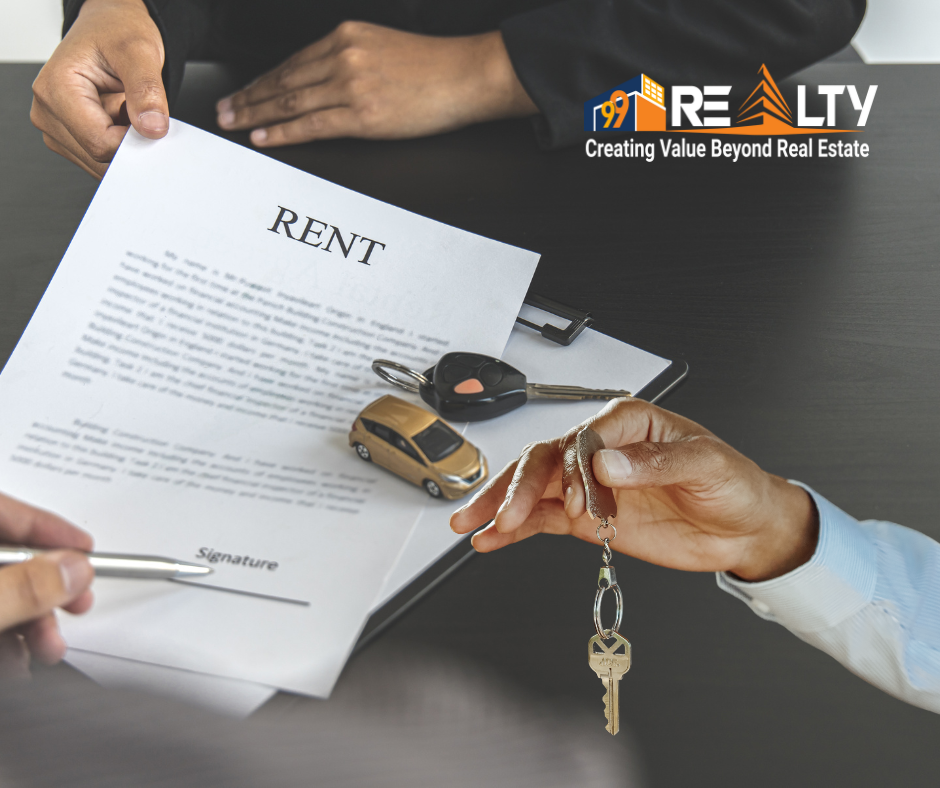You walk into a freshly painted flat, marble tiles glistening, and a smiling broker saying, “Sir, you won’t get a better deal in this area.” Sounds familiar? It’s easy to fall for the first rental that “feels right.” But here’s the harsh truth—renting without doing your homework is like signing a blank cheque. You’re trusting too much, too soon.
In India, where property laws are layered and negotiations are informal, being unprepared can cost you not just money but peace of mind.
Buying vs. Renting a Home in India: A Comprehensive Guide
The Real Cost of Being Unprepared
You could move in and suddenly discover that:
- The water supply is erratic.
- The society has a no-pet rule, and you own a dog.
- Your rent increases 15% every year without prior discussion.
- The landlord refuses to return your deposit.
- You have to bear any unforeseen repairing cost.
A dream home turns into a daily headache. Don’t want that? Let’s break it down.
9 Things You Should Keep in Mind While Renting a Property
1. Location and Neighbourhood Vibe
Don’t just visit during the day—come in the evening too. What looks peaceful at noon might be a party zone at night. Check for essentials like grocery stores, hospitals, and safety. Use Google Maps, yes, but also talk to locals.
2. Understand the Rent Agreement Terms
Don’t sign without reading every clause. Look for:
- Lock-in period
- Notice period for vacating
- Rent escalation clause
- Repair responsibilities
Pro Tip: Always sign a registered rent agreement. An unregistered one holds no legal weight in court.
3. Verify the Landlord’s Authenticity
Is the person you’re dealing with actually the owner? Ask for:
- Property tax receipt
- Electricity bill
- Aadhaar card or PAN
In case of a broker, ensure you get all communications in writing.
4. Check Property Condition Thoroughly
Don’t rely on visual inspection alone. Check taps, electric sockets, doors, plumbing, and paint quality. Click photos before moving in to avoid future disputes.
5. Evaluate Additional Costs (Maintenance, Utilities, Parking)
Some societies charge separate maintenance fees. Some landlords expect you to pay for property tax (not your job). Clarify all this in writing.
Demystifying Maintenance Charges on Flats: What Every Homebuyer Should Know
Always record a video walkthrough of the property (with date and time) during move-in. Capture every corner, scratch, stain, or defect — this becomes your visual proof in case the landlord blames you later for damages and tries to deduct from your deposit.
6. Know Your Rights as a Tenant
Under the Model Tenancy Act 2021, tenants cannot be evicted without due notice. Also:
- Landlords can’t enter without 24-hour notice.
- Rent hikes require prior consent.
7. Confirm Security Deposit Norms
In cities like Bengaluru, 10-month deposit is common. But as per norms, 2-3 months is fair. Always get a receipt for the deposit paid and ensure refund timelines are mentioned.
8. Check Connectivity & Amenities
Is the nearest metro 2 km away or 10? Is there 24×7 power backup? Mobile network signals? Wi-Fi service provider available?, These “little” things often become major annoyances later.
9. Inspect for Any Legal Disputes or Encumbrances
Ask the landlord if the property has any loan, dispute, or legal notice. If you’re renting for long-term, request to see the title deed or encumbrance certificate.
Ultimate Guide to Home Loan Down Payments in India (2025)
Residential Renting in India: What the Law Says
When you rent a home to live in, Indian tenancy law views it very differently from commercial rentals.
Rights of Residential Tenants
- Right to peaceful possession
- Right to essential services (water, electricity, etc.)
- Right to claim refund of security deposit
- Right to be informed before inspection visits
Obligations of Tenants
- Pay rent on time
- Use property without causing damage
- Not sub-let without permission
- Vacate peacefully after agreement ends
Under the Model Tenancy Act, tenants can no longer be harassed for eviction unless legal procedures are followed.
Commercial Renting in India: Know the Difference
Now let’s talk business. Literally. Renting a space for your shop, office, or restaurant? It’s a whole different ball game.
Key Clauses in Commercial Lease Agreements
Commercial leases often include:
- Minimum 3-5 year lock-in period
- Rent escalation clauses (10-15% every 3 years)
- Strict exit clauses
- Cam charges (Common Area Maintenance)
Also, stamp duty is higher for commercial leases than residential ones.
GST and Commercial Rentals
Here’s the twist: If the landlord is GST-registered and rent exceeds ₹20 lakhs annually, 18% GST is applicable on rent. This can impact your total outflow significantly—so calculate beforehand.
Also, commercial tenants get fewer legal protections than residential ones. So, Its better to document and plan everything.
Final Thoughts: Be a Smart Renter, Not a Sorry One
Renting a house (or office) in India is not just about the money—it’s about your lifestyle, comfort, and security. A few hours of homework today can save months of frustration tomorrow.
Whether it’s checking the legal status of the flat, clarifying the landlord’s terms, or reading between the lines of a rental agreement—always act like a detective, not a dreamer.
Remember: a wise tenant doesn’t just look at interiors; they ask the right questions.
FAQs
1. Is it mandatory to register a rental agreement in India?
Yes, for agreements exceeding 11 months. It adds legal validity and protects both parties.
2. What’s the average security deposit for residential renting?
Typically 2–3 months of rent, though some cities like Bengaluru demand 6–10 months.
3. Can a landlord increase rent arbitrarily every year?
Not without your consent. Any hike must be part of the rental agreement or mutually agreed upon.
4. Is commercial rent taxable under GST?
Yes, if the landlord is GST-registered and the rent crosses ₹20 lakhs annually, 18% GST applies.
5. What should I do if my landlord refuses to return my deposit?
Send a legal notice. If unresolved, file a complaint under the Consumer Protection Act or approach Rent Control Board.
Need Help?
Need help evaluating a property or planning your next move in the market?
Reach out to 99 REALTY – your trusted real estate partner for smarter choices.
Subscribe to get updates on our latest posts and market trends.






Join The Discussion